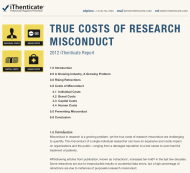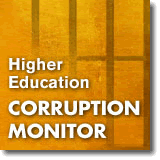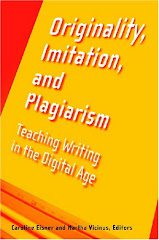Gen Relativ Gravit
DOI 10.1007/s10714-007-0531-2
EDITORIAL
Editorial note: The issue of plagiarism
George F. R. Ellis · Hermann Nicolai
© Springer Science+Business Media, LLC 2007
Readers of this Journal may be aware that the admistrators of the internet archive www.arXiv.org have withdrawn a series of papers from the archive because of claimed plagiarism. Most of these papers have been published in reputable international journals, and the list includes two papers published in General Relativity and Gravitation. Because of the seriousness of these claims, we have investigated these two papers with the following results.
The first is gr-qc/0607104, published in Gen. Rel. Grav. 37:2093–2104 (2005). In this case, it is claimed there is substantial overlap with two other arXiv submissions; but these other papers are written by the same authors.We have checked that the three papers concerned contain different original research results, and this is indeed the case. However there is considerable repetition between them in the introductory material, where cut and paste techniques have been used. We do not see a serious problem in authors using such cutting and pasting techniques from their own papers for introductory material, even though we would prefer that material to be written anew each time. It is a matter of taste as to how much introductory material is repeated in each paper, and our referees generally ask for such duplication to be reduced. There may be more overlap than desirable in these three papers, but this does not constitute plagiarism, as originally claimed by the arXiv administrators.They have since revised that statement to “withdrawal because of excessive overlap” with other papers by the same authors. We do ask referees to comment if they detect such overlap.
The second paper is arxiv:0705.2930 [gr-qc], published in Gen. Rel. Grav. 39: 849–862 (2007). The issue is similar, but here there has been cutting and pasting of introductory material from papers by other authors, rather than from their own papers, and this is certainly objectionable.We do not believe referees or editors can be expected to detect such copying in general; rather their task is to see if the research presented is original and interesting, and this paper is acceptable in that regard; the research results are indeed new. We do not regard such word for word copying of introductory and descriptive material by others as acceptable, as it constitutes plagiarism of that material, even if there is no plagiarism of research results.
We hereby notify our potential authors that we do not regard the practice as acceptable, and we also note that internet search engines can easily detect such word for word copying, as happened in this case.
The first is gr-qc/0607104, published in Gen. Rel. Grav. 37:2093–2104 (2005). In this case, it is claimed there is substantial overlap with two other arXiv submissions; but these other papers are written by the same authors.We have checked that the three papers concerned contain different original research results, and this is indeed the case. However there is considerable repetition between them in the introductory material, where cut and paste techniques have been used. We do not see a serious problem in authors using such cutting and pasting techniques from their own papers for introductory material, even though we would prefer that material to be written anew each time. It is a matter of taste as to how much introductory material is repeated in each paper, and our referees generally ask for such duplication to be reduced. There may be more overlap than desirable in these three papers, but this does not constitute plagiarism, as originally claimed by the arXiv administrators.They have since revised that statement to “withdrawal because of excessive overlap” with other papers by the same authors. We do ask referees to comment if they detect such overlap.
The second paper is arxiv:0705.2930 [gr-qc], published in Gen. Rel. Grav. 39: 849–862 (2007). The issue is similar, but here there has been cutting and pasting of introductory material from papers by other authors, rather than from their own papers, and this is certainly objectionable.We do not believe referees or editors can be expected to detect such copying in general; rather their task is to see if the research presented is original and interesting, and this paper is acceptable in that regard; the research results are indeed new. We do not regard such word for word copying of introductory and descriptive material by others as acceptable, as it constitutes plagiarism of that material, even if there is no plagiarism of research results.
We hereby notify our potential authors that we do not regard the practice as acceptable, and we also note that internet search engines can easily detect such word for word copying, as happened in this case.







